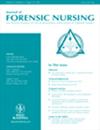情绪教育方案对罪犯影响的实验研究
IF 0.9
4区 医学
Q3 CRIMINOLOGY & PENOLOGY
引用次数: 1
摘要
情绪教育对身体和/或情绪健康有有益的影响,从而提高生活质量。因此,为囚犯提供情感教育是有益的,因为他们经常遇到困难,以获得这些好处。目的分析护理干预方案对在押人员情绪教育的效果。方法以西班牙东南部某监狱为研究对象,采用前测后测重复测量法进行实验研究。48名囚犯参加了情感教育干预项目,另外48人作为对照组。采用情绪智力问卷24项特质情绪元量表、韧性量表、Rosenberg自尊量表、Rathus自信量表和36项简短健康问卷。结果实验组在组内、干预前和干预后的比较中,自尊(p = 0.00, r = 0.51)、弹性(p = 0.00, r = 0.42)、自信(p = 0.00, r = 0.46)、情绪智力(p = 0.00, r = 0.32)和清晰(p = 0.02, r = 0.22)以及大部分生活质量维度均有改善。除了注意力和情绪清晰度维度外,所有这些变量都存在显著的组间差异。结论:干预措施改善了囚犯的社会情绪健康和生活质量,强调了护理人员作为监狱内一项有计划的活动定期开展这些干预措施的重要性。本文章由计算机程序翻译,如有差异,请以英文原文为准。
Effects of an Emotional Education Program on Prisoners: An Experimental Study
ABSTRACT Background Emotional education has beneficial effects on physical and/or emotional health, resulting in a better quality of life. Thus, it is beneficial to provide prisoners with emotional education, because of the difficulties they often have, to attain these benefits. Purpose The aim of the study was to analyze the effects of a nursing intervention program in emotional education for incarcerated persons. Methods Experimental study with pretest–posttest repeated measures with a control group was conducted at a penitentiary center in the southeast of Spain. Forty-eight prisoners participated in the emotional education intervention program, and another 48 were part of the control group. The emotional intelligence questionnaire 24-item Trait Meta-Mood Scale, the resilience scale Connor–Davidson Resilience Scale, the Rosenberg Self-Esteem Scale, the Rathus Assertiveness Questionnaire, and the 36-item Short Form Health Survey were utilized. Findings The intragroup, preintervention and postintervention comparisons in the study group showed improvements in self-esteem (p = 0.00, r = 0.51), resilience (p = 0.00, r = 0.42), assertiveness (p = 0.00, r = 0.46), and emotional intelligence in its dimensions of repair (p = 0.00, r = 0.32) and clarity (p = 0.02, r = 0.22) as well as in most of the quality of life dimensions. Significant intergroup differences were also found in all of these variables, except for attention and emotional clarity dimensions. Conclusion The intervention improved the socioemotional health and quality of life of the prisoners, highlighting the importance of these interventions to be performed by the nursing personnel on a regular basis as a programmed activity within prisons.
求助全文
通过发布文献求助,成功后即可免费获取论文全文。
去求助
来源期刊

Journal of Forensic Nursing
NURSING-
CiteScore
1.50
自引率
10.00%
发文量
120
期刊介绍:
The Journal of Forensic Nursing (JFN) the official journal of the International Association of Forensic Nurses, is a groundbreaking publication that addresses health care issues that transcend health and legal systems by articulating nursing’s response to violence. The journal features empirical studies, review and theoretical articles, methodological and concept papers, and case reports that address the provision of care to victims and perpetrators of violence, trauma, and abuse. Topics include interpersonal violence (sexual assault, abuse, intimate partner violence); death investigation; legal and ethical issues; forensic mental health nursing; correctional nursing; and emergency and trauma nursing.
 求助内容:
求助内容: 应助结果提醒方式:
应助结果提醒方式:


